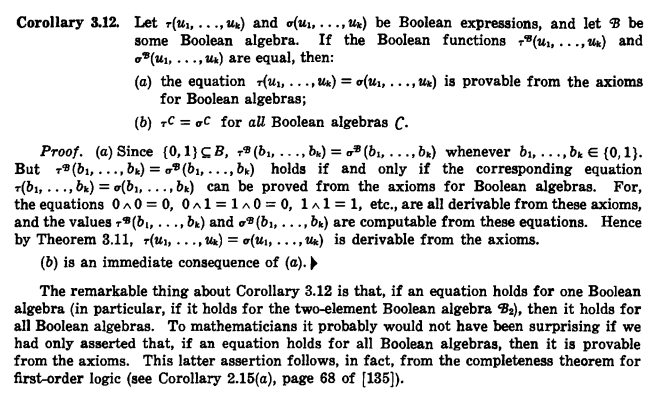On p62 in Schaum's Outline of Theory and Problems of Boolean Algebra and Switching Circuits by Elliott Mendelson (1970),
Part (b) of the corollary says that if an identity is satisfied by some algebra which satisfies the axioms of Boolean algebras, then it is satisfied by any algebra which satisfies the axioms of Boolean algebras.
In model theory, logic, and universal algebra, consider the following statement
Given a set of formulas or identities, if a formula or identity is satisfied by some (algebraic) structure which satisfies the set of formulas or identities, then it is also satisfied by any (algebraic) structure which satisfies the set of formulas or identities.
Is it true that the statement isn't true in general?
Is the statement true in a context other than or more general than Boolean algebra?
Is there a name for the concept or property represented by the statement, either in Boolean algebra, or more generally in universal algebra, logic, or model theory?
Is the concept or property represented by the statement mentioned in some standard books in Boolean algebra, logic (e.g. Ebbinghaus'), universal algebra (e.g. Burris'), or model theory (e.g. Chang's)? (Burris' universal algebra book has Chapter IV on Boolean algebra, which I wonder if has relevant coverage, and the chapter is not as easy to access as Mendelson's book for me now.)
Thanks.

